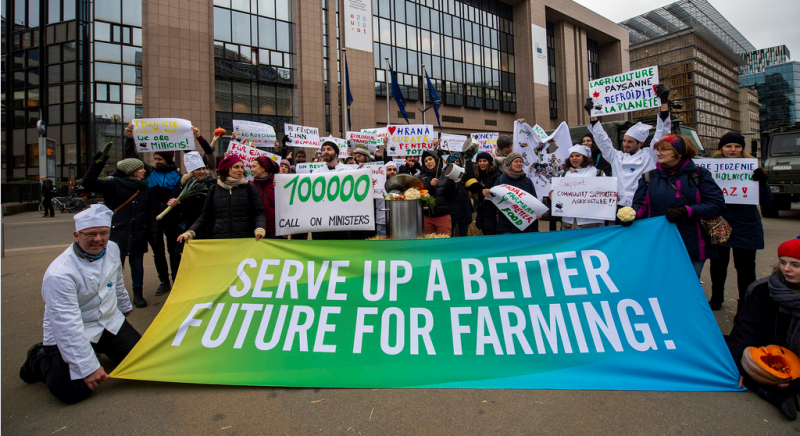In November 2018, activists from all over Europe and from all walks of activist life including YFoE gathered in Brussels. We gathered under the roof of Good Food Good Farming, assembled by the hard work of the people running that campaign. Young Friends of the Earth are one of 80+ organizations who support and make up the GFGF coalition. We came together because at that same time, the representatives from our countries were inside the EU Council deciding on the future of EU agriculture, in the form of negotiations on the Common Agricultural Policy.
What is the CAP?
The CAP is the single most important piece of EU budget policy, accounting in 2018 for 37.6% of our expenditure. Historically it is used to subsidize farms in the EU to protect EU goods from external market competition and to protect the income of farmers in the EU in such a way that the rural farmers and their communities are financially supported and incentivized to manage the land properly. In effect, it is also put to use to provide big paychecks to the farmers who help write the policy. The CAP is split up into two parts, the first is the direct payments where farmers receive a payment based on the size of their farm and its historical use e.g. dairy or poultry etc. The second part is the fund for rural development and is tasked with the upkeep of rural communities and natural environment of the EU.
We gathered to raise the voice of hundreds of thousands if not millions of people in Europe who say CAP is not producing results that the people who pay for it and feel its effects would like. For one thing, the CAP supports the status quo of inequality in the agricultural industry. Big farmers can affect EU policy through national farming institutions to ensure big payments are given only to those already in power. As it stands, 80% of payments are made to 20% of farms. At the same time, we are seeing a degradation of rural communities across the continent. This is part of a worldwide phenomenon of urbanization which threatens the sustainability of rural populations. With this process of migration from the countryside, the communities there are at much higher risk of poverty and social exclusion than people living in cities. Many European people feel the CAP could do more to halt this process by supporting young farmers especially. On the environmental side, the current version of CAP is not protecting our environment but rather incentivizing intensive industrial farming. With this, we are losing biodiversity on farmland at a rapid pace, with around a 50% reduction in birds and butterfly species for example, and a quarter of our bee species now being threatened with extinction. Auditors from the European Court of Auditors declared that due to loopholes and flexibility in the policy, that the CAP is currently “unlikely to provide significant benefits for the environment and climate” as it only affects 5% of EU farmland.
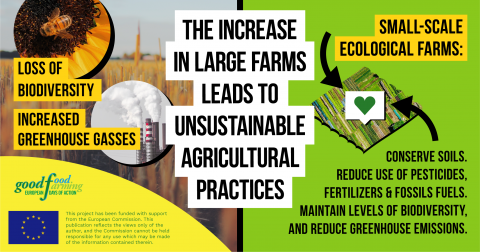 |
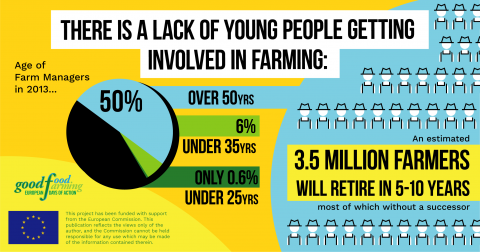 |
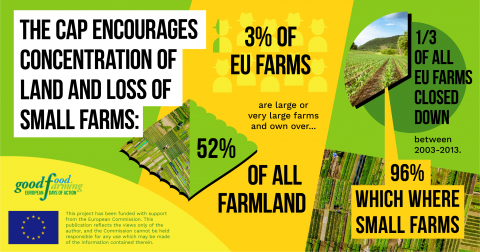 |
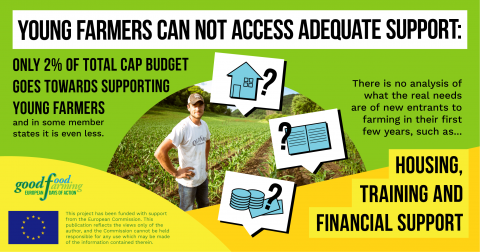 |
The picture then, is one where the natural environment in the EU and world at large is in urgent need of remedy. The rural populations are in decline and in need of support if they are to survive. This is not what the European people are calling for. A 2017 survey of all European states showed that 89% of Europeans believe that farms should receive less subsidies if their treatment of food, animals and the environment is not up to scratch. A similar 88% believe that farmers should receive more subsidies if their production process is environmentally friendly. A similar majority want to see (especially young) farmers empowered by the food system. Two thirds want food of better quality with less environmental impacts such as pesticides and believe that organic foods are a good way to achieve this. We were in Brussels to represent this vast, vast majority of people who want to see their food production system supporting farmers and in harmony with the natural environment.
What did we do?
October to November marked the culmination of huge efforts on the part of GFGF to mobilize people on the issue of European agriculture. On 27th and 28th October 2018, FoE and YFoE Europe participated in some of the 69 events held all across Europe for the GFGF days of action. These took the form of picnics, flash mobs, markets, marches, lectures and film screenings, farm visits, workshops and potlucks, all in the name of raising collective awareness about our food system and how we can improve it. In our November meeting we gathered primarily to demonstrate and deliver the open letter from over 114,000 people in Europe who want to see their food system in harmony with the natural environment, producing quality food and prioritizing support of those who produce it, rather than the profit of a small few. On November 19th, we organized a disco soup outside the meeting point of ministers discussing CAP. We danced, chanted and prepared soup using surplus vegetables from the markets. We presented this soup, the open letter and some strongly worded views to the Austrian Presidency of the Council of the EU to show him how much Europeans care about their food system and that we are willing to mobilize to make sure their voices are heard
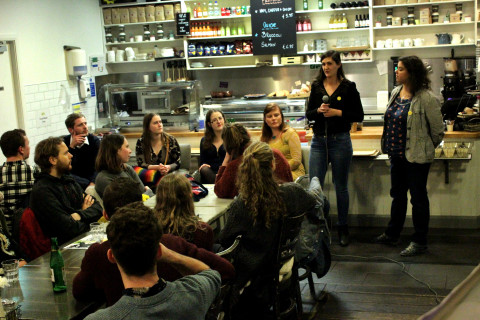 |
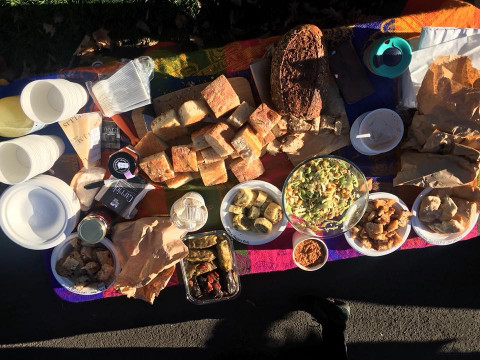 |
YFOE groups in Ireland and Scotland on their GFGF days of action, engaging in a public picnic and debates centered on the European food system. For more stories about YFoEE’s GFGF days of action, check here!
In our meetings and in our protest outside the European Parliament, we embodied the change we would like to see. The event was as much a celebration of the earth and the food she provides as it was a protest her current treatment. We performed chants and danced in front of the EU, communally prepared food and engaged each other, passers-by and some of our leaders in conversation about these crucial issues. We also celebrated that a diverse group of people who otherwise could not know each other would come from each corner of Europe for this shared cause; the protection of our earth, the delivery of good food to the people and the support of the farmers that support both us and their own communities. It was in this spirit that we engaged our leaders and handed over our open letter calling for good food and good farming.
What’s next?
Over the coming months, European ministers and EU committees will continue to debate and revise the new CAP. This is our window to affect policy change through national and international efforts. Good Food Good Farming will continue to be a leading body in this effort. The next event to be held will be “Wir Haben es Satt” organized by GFGF ally Meine Landwirtschaft on the 19th of January in Berlin. Beyond this, the steering group of GFGF say that their focus will continue to be EU level network facilitation of member groups, public actions and collective communication strategies around CAP and our food system at large.
YFoE will continue to partner with GFGF and mobilize the youth and encourage the population at large to wake up to what is going on in our decision-making center in the EU, to the fact that our food system and the well-being of our environment, and the environment our children will inherit, is inseparable from our food system and that this system is being shaped as we speak. By engaging our leaders in Brussels, we felt palpably that the decision making is not inaccessible to citizens who are willing to pool resources and time and to create a megaphone for the voices of the population at large. We cannot allow the policy to be shaped only by those lobbying for their own profit. Independent voices from the citizens of Europe must be heard and must be the driving force of change that our leaders can listen to and our experts materialize. This was the message YFoE and GFGF spoke in Brussels.
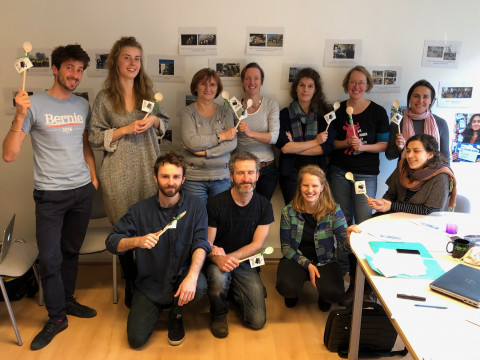
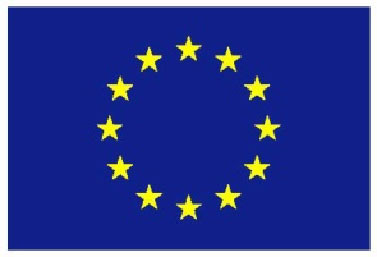 This project has been funded with support from the European Commission. This website reflects the views only of the author, and the Commission cannot be held responsible for any use which may be made of the information contained therein.
This project has been funded with support from the European Commission. This website reflects the views only of the author, and the Commission cannot be held responsible for any use which may be made of the information contained therein.

